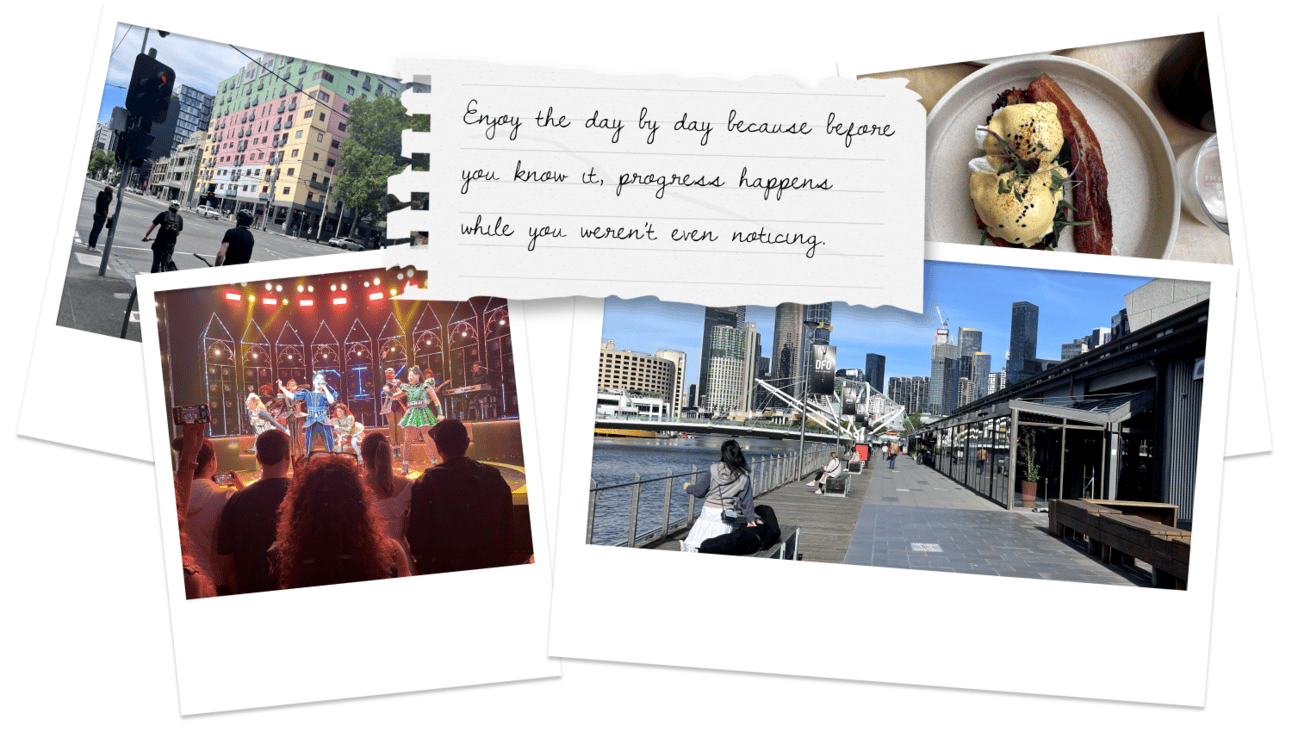Dear Younger Self,
My work experience has been a patchwork of jobs: McDonald’s, mowing lawns, building websites, even delivering newspapers. But it was my first corporate role that truly opened my eyes to the professional world. As an EDM and graphic design specialist, I had a front-row seat to the inner workings of small e-commerce businesses. I also witnessed the growth of a startup agency from the ground up.
This experience introduced me to what I call the first side of the “business coin.” It’s the textbook definition of business: a “regular occupation” or “commercial activity.” It’s the structured, conventional side, the kind that operates within society’s established frameworks and rules.
This side isn’t inherently good or bad; it’s just how the business world is built.
But then there’s the other side of the coin, the one that has my face on it. This side represents my personal approach to business: creative, instinctive, and shaped by my unique experiences. Sometimes, when I flip this metaphorical coin, it lands on the conventional side, reminding me that some situations call for established practices. Other times, it lands on my side, signalling that my personal insights are the best guide forward.

What I’ve learned is this: when faced with a business decision, sometimes the traditional path is best.
But.
Other times, the “textbook” I’ve written through my own experiences is far more effective. The skill lies in knowing when to rely on conventional wisdom and when to trust your own instincts.
This lesson has reshaped the way I approach challenges—not just in business, but in every part of life. Whether you’re in arts, sciences, sports, or any other field, there’s always a balance to strike. Respect the foundations of your craft, but don’t be afraid to flip the coin and rely on your own experiences and innovations.
Progress doesn’t come from rigidly following the rules or blindly forging your own path. It’s about blending the two; honouring tradition while trusting your unique perspective. That balance is where the magic happens.
With Love,
Le Hare
Life Lessons
Balance is key. Learn when to trust conventional wisdom and when to follow your instincts.
Respect tradition, but don’t be afraid to innovate. Progress lies in blending the two.
Your personal experiences are your greatest asset. They shape your unique approach to solving problems.
The rules are tools, not constraints. Use them when they serve you, but know when to break away.
Growth happens when you embrace both sides of the coin. Honour the system, but trust your own vision.
This Week’s Wins
Successfully completed my first major client project using both conventional strategies and personal intuition.
Reflected deeply on my growth and shared a new perspective on the balance between tradition and innovation.
Started planning a new initiative to help other creatives apply this "business coin" approach in their own fields.
Received positive feedback on a presentation, reinforcing that my voice and ideas have value.
Resource Recommendation
Book: Range: Why Generalists Triumph in a Specialised World by David Epstein
This book explores how diverse experiences and perspectives can lead to innovative solutions. People who think broadly and embrace diverse experiences and perspectives will increasingly thrive.
Reflective Prompt
What’s a situation where you relied too heavily on conventional wisdom or on your instincts? How could balancing the two have led to a better outcome?
A: I’ve made many financial mistakes in my pursuit of building something for myself. The first was a jewellery business, the second an apparel brand, and later, I dabbled in software development. I call them mistakes because the outcomes didn’t align with my understanding of return on investment. I placed all my bets on ideas that ended up teaching me far more than they rewarded me financially.
Looking back, I realise it was because I relied too heavily on my instincts—instincts I mistakenly believed were grounded in textbook wisdom. I was overconfident, basing my decisions on just one year of fragmented experience, insights from businesses I’d observed struggling, and a very limited understanding of technology.
While I don’t necessarily regret those decisions, I do wish they had been cheaper mistakes. But I’m still here. And now? Now I’m moving slower, but with more intention and a focus on higher quality.
Your Turn.
